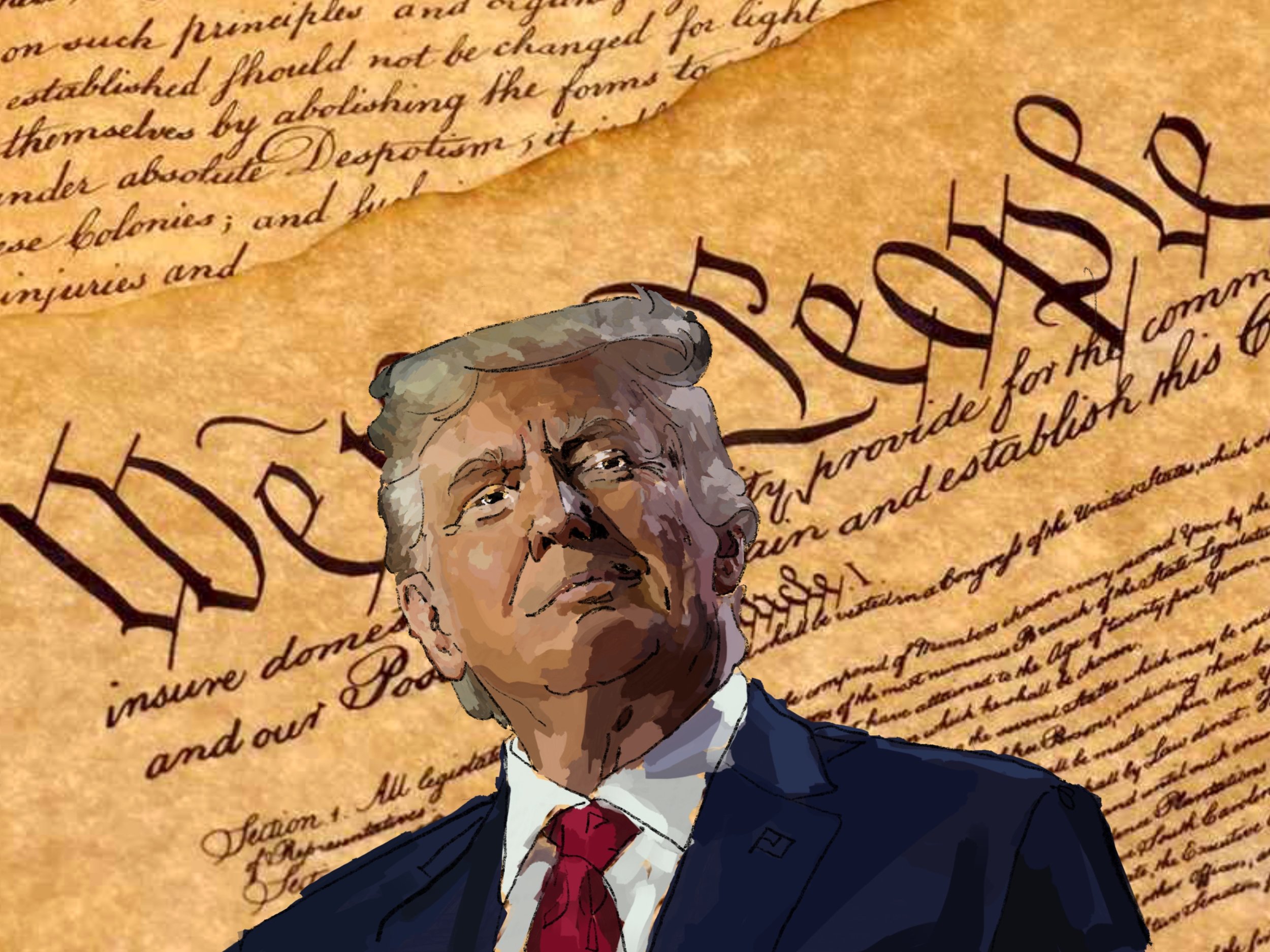Behind White House Gates or Prison Bars?
Kaylie Viloria
Section three of the 14th Amendment may be the causation of disqualification from the presidential elction for one of the most controversial presidents in United States history– Donald Trump. Section three of the 14th Amendment states that no person previously an officer of the United States can hold another office if they engaged in or aided any insurrection or rebellion. In light of the January 2021 Capitol attack, in which Trump was accused of four counts (conspiracy to defraud the US, tampering with a witness, and conspiracy against the rights of citizens), law professors argue that Trump may be disqualified from running. This argument has turned into one of the most significant legal challenges in his candidacy.
This insurrection has been a hot topic of debate within the realm of constitutional law– can this amendment keep him from running? Even the founder of the prolific Federalist Society has backed both sides of the debate, as professionals pick apart this specific section of the amendment. Some say that he engaged with the rioters through social media, while Trump, himself, claims the First Amendment, freedom of speech, protected him. Others claim that because the American voting process is so decentralized, theoretically, every state official could decide whether Trump is allowed on the ballot.
However, a big question is, what will this mean for democracy and the legitimacy of America's founding documents if either side wins?
Illustration by Ava Park
Scholars argue that no matter the outcome, it will be negative. If Trump is disqualified, there will be a guarantee that he will weaponize his loyal following to potentially spread misinformation and wreak general havoc, as seen in the past. Conversely, if he is allowed to run, this would undermine the authority of the Constitution which may prove to be a turning point in American history as the founding document on which our governance is based would be dismissed.
So should Trump be disqualified?
Rachel Tamar Van, an Associate Professor of early American history at Cal Poly Pomona with a Ph.D. in American history from Columbia University, answered, “I think this is a process question, as in due process. If he’s convicted in Georgia, then the question becomes more salient.”
She further added a personal anecdote, “I’m leery of state actions to take him off ballots and I think the argument made by some legal scholars that Section 3 is ‘self-executing’ is problematic. (See Laurence Tribe in the Atlantic.) Skipping due process adds fodder to efforts (most notably by Trump himself) to delegitimize institutions and to reduce everything to politics.” Van stated that this view was purely historical rather than lawyerly, thus contingent. Jack Dowsett, an AP Government teacher at OCSA, added that it may be interesting to explore the implications of the 22nd Amendment in regard to Trump.
The future of constitutional law procedures remains unclear as we delve into the fourth industrial revolution, and it is up to us as Americans to minimize the consequences.
